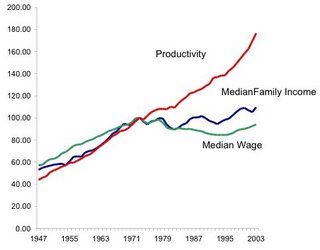I've just returned from my Senate District 45 DFL Convention, and few things have been made clear. Here's the short version for skimmers:
1. Despite the crowded field vying to replace Martin Sabo, it wasn't hard to pick a candidate.
Keith Ellison is mine.
2. I'm no closer on the governor's race, though wasn't it interesting I avoided making eye contact with Mike Hatch as he worked the room?
3. I love Ford Bell, but I really want to retire Mark Kennedy, and I think Amy Klobuchar is more likely to do it.
5th Congressional District Race
The DFL nominee in the 5th is a lock on going to Washington, so hopefuls are coming out of the woodwork. Looking at the line of candidates waiting to speak today, you'd have thought this was a convenience store and the Powerball had surpassed $200 million.
Most of the candidates showed up, plus former Hennepin County Board Chair Mark Andrew, who is still exploring and hasn't formally declared. (Presumably
Polinaut's list which was updated yesterday and is at least two candidates short, will be current on Monday.)
I didn't see big differences on the issues among the candidates, so this was more a swimsuit and talent competition...
No shows: Jon Olson, Anne Knapp. Therefore, no comment.
The City Council Krewe: Paul Ostrow and Gary Schiff should plan on keeping their Minneapolis jobs. Schiff's energy program has us lessening our dependence on "foil oreign." Oy.
Sabo Lite: Mike Erlandson not only has his boss's blessing, he has his boss's charisma.
Personal stories: Gail Dorfman and Rebecca Yanisch both shared personal stories to underscore their passion for office. Dorfman's son is gay and Yanisch told of a nephew who signed up for the National Guard so he could pay for school and was immediately shipped to Iraq. It may not be original, but I liked her line about how kids shouldn't have to risk dying to go to college.
Hometown team: Ember Reichgott Junge and Jorge Saavedra. Junge was stumping in her old junior high and had solid support. She's a tad too
Up with People for me. I'm told she'll go to primary with or without the endorsement. Chilean immigrant Saavedra will be an attractive candidate somewhere, sometime, but this isn't the time.
Surprising firebrand: Jack Nelson-Pallmeyer declared himself a candidate when Sabo was still presumed to run, and this is all the thanks he gets. After hearing him speak, I consider him the Ford Bell of the Fifth. I'd take off points for the notecards in his hand, but his words and passion ranked right at the top.
Across the Great Divide Candidate: Keith Ellison had started to speak when I was in the hallway being buttonholed by a J N-P supporter. The ringing strains coming from the cafeteria pulled me in. Other candidates had programmed pauses in which to insert applause; Ellison was the only one to consistently receive it. Yes, he was the first to speak, but discounting hometowner Junge, he was the only Congressional candidate to win his own delegate.
In general, I'm not a big fan of the "I will fight for..." campaign rhetoric Ellison employed. But that's because it often turns out to be just rhetoric. And real fighters aren't very effective on the everyday work of governing.
But the party needs fighters with a clue. I think Ellison qualifies. We don't need a safe candidate to attract swing voters in this district. We need someone who can make us glad we're progressive. I won't belabor this. Just say I knew Paul Wellstone. Paul Wellstone was a friend of mine. And Keith Ellison did a passable Paul Wellstone.Governor's race
I was most undecided about this race and wanted to hear from Steve Kelly, because he's the indistinct choice for me. We got his wife as proxy instead. By the accounts of people who know him, he's a nice, smart, decent, hard-working man. I want all those things, but I also want someone who will free Tim Pawlenty to take a full-time position with the
Taxpayers League or the
Minnesota Family Council. I still don't know whether Kelly is the man.
I do know Becky Lourey isn't the woman — though if she had a snowball's chance, I'd stand with her. But the voters didn't buy her once and Republicans have gotten even nastier since. Their campaign ads would have Lourey standing with Cindy Sheehan and Sheehan with Michael Moore and Moore with Osama, and before you know it, too many voters will think she exploited her son's death in Iraq so she could be Governor.
Mike Hatch did show and gave a stemwinder speech largely focused on health care. This may be a good strategy, since health care polls highly with voters. He has a clear record advocating for the consumer and making health care more affordable and accessible. Hatch has the perfect makeup for Attorney General, and he may have what it takes to beat Pawlenty. But then he has to govern, and unless his health care plan covers personality transplants, in a few years we might be looking back fondly on the Ventura administration.
Senate race
Klobuchar sent her daughter and husband. Bell came in person. He got off a good line about Bush wanting to fix Social Security. "Well, I'm a veterinarian, and 'fix' has a very specific meaning."
Ford, if you can help sharpen Amy's positions on the war and health care, you'll have done a good thing.











